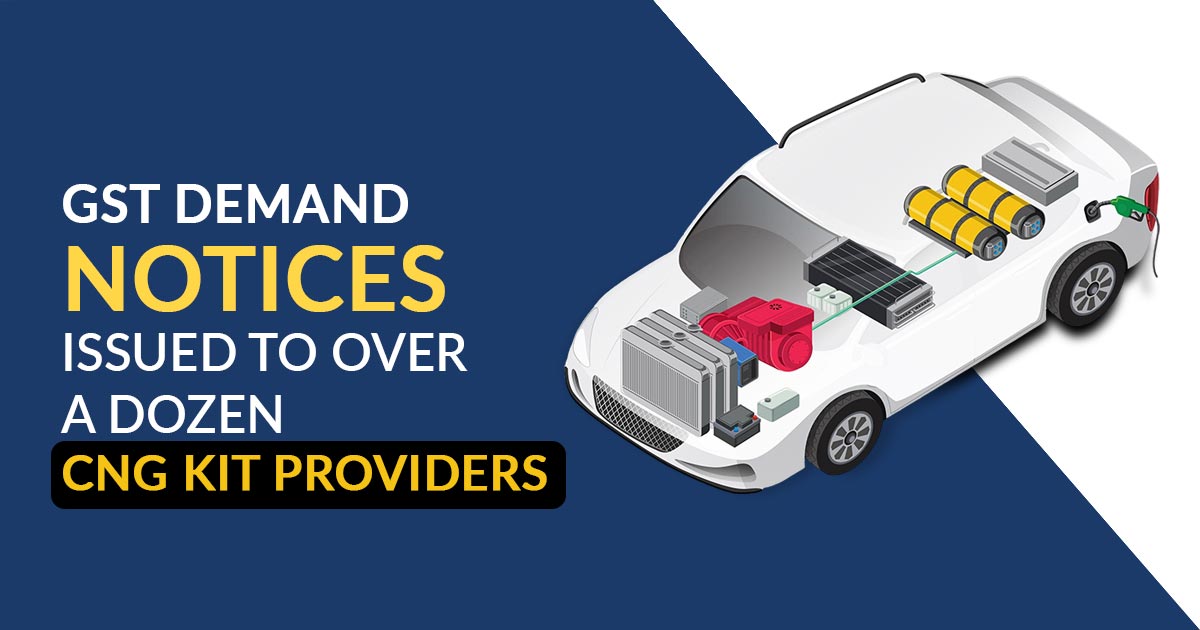
A show cause notice has been sent by the Goods and Services Tax (GST) authorities to a dozen companies furnishing a CNG cylinder to track the vehicles alleging misclassification of these fuel tanks.
Between September and November, the sent notices allege that the companies incorrectly categorized the CNG fuel tanks as general cylinders for the compressed gas and filed 18% GST even after these cylinders were used in the motor vehicles.
The authorities have asked for the unpaid tax from July 2017 to April 2024, with interest and penalty.
As per the industry, the same can have bigger tax implications. It was claimed by the authorities that the CNG fuel tanks are integral to vehicles, identical to the petrol or diesel tanks, and cannot be interchanged with other cylinders and thus obligated to 28% GST. The CNG kits are an auto part and are not identical to an empty CNG fuel tank.
Under the officials it cited that such was not the same as CNG conversion kits as these kits in toto support the motor vehicles made to run on fuels like petrol and diesel run on CNG, furnishing an alternate fuel charging system to the one existing in the engine.
The industry keeps the tax rate paid founded on consultations and purchase orders from top auto clients, which established 18% GST.
The Show Cause Notice (SCN) demand notices reference violations beneath diverse sections of the Central GST Act, 2017, and pursue penalties, interest, and adjustments for misdeclared payments.
30 days have been provided to the companies to answer and show their defence, failing which an ex parte adjudication may occur. Legal experts cited that the CNG fuel tanks are not inherently motor vehicle parts under HSN code 8708 (28% GST) unless explicitly described.
GST statutes furnish no specific distinction between standalone gas cylinders and those utilized in vehicles in the matter of obscurity, judicial precedents take favour of the interpretation of the taxpayer.
The issue was that if the CNG cylinders must be categorized under Chapter 87 as parts of motor vehicles or under a detailed description as part of Chapter 73. The GST Council ideally provides a clarification in the case to prevent prolonged litigations.
The Central Board of Indirect Taxes and Customs (CBIC) said that for the applicable tax rate, it must provide the required transparency to the industry.










Mijio company not giving proper billing